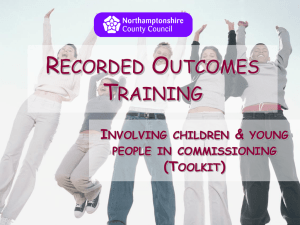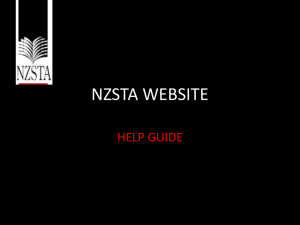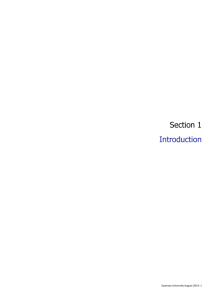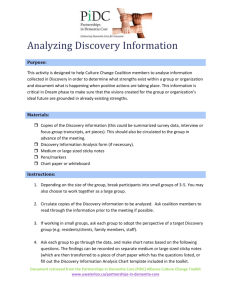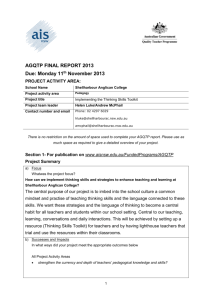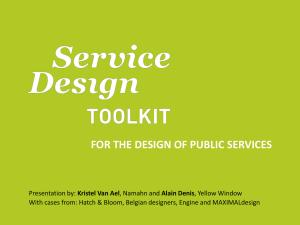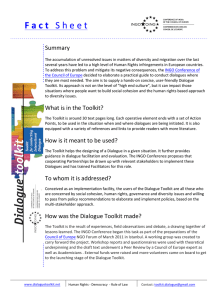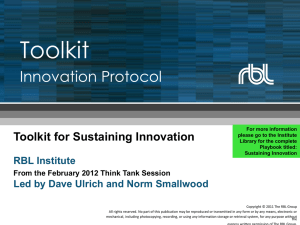Users Guide - Physicians for Social Responsibility
advertisement
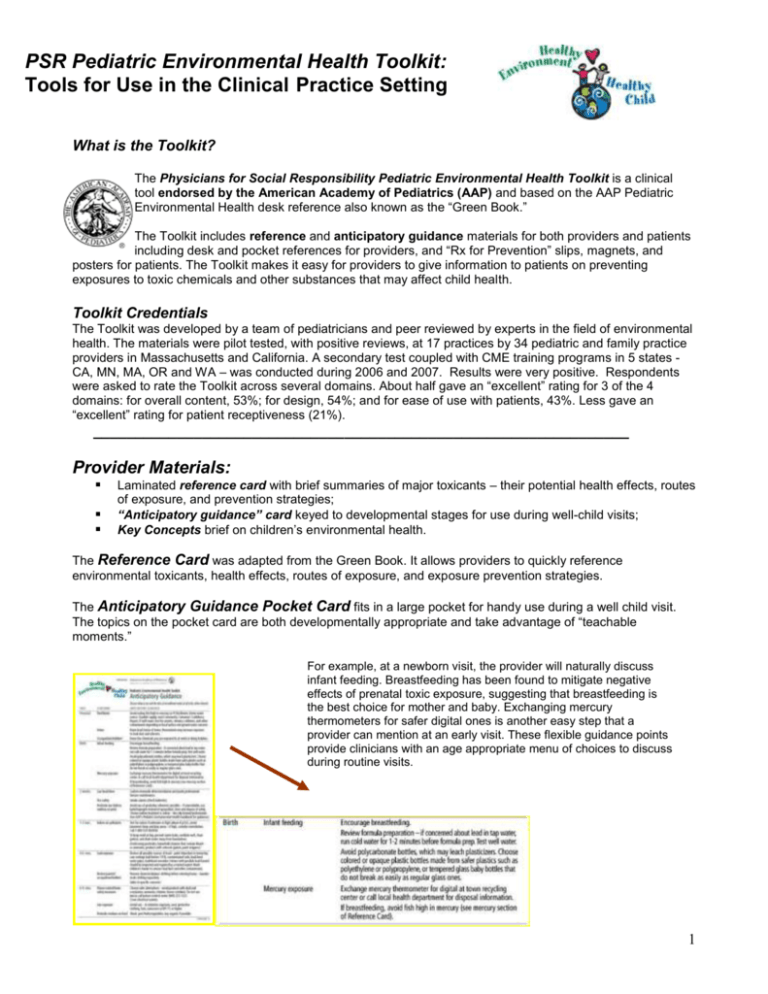
PSR Pediatric Environmental Health Toolkit: Tools for Use in the Clinical Practice Setting What is the Toolkit? The Physicians for Social Responsibility Pediatric Environmental Health Toolkit is a clinical tool endorsed by the American Academy of Pediatrics (AAP) and based on the AAP Pediatric Environmental Health desk reference also known as the “Green Book.” The Toolkit includes reference and anticipatory guidance materials for both providers and patients including desk and pocket references for providers, and “Rx for Prevention” slips, magnets, and posters for patients. The Toolkit makes it easy for providers to give information to patients on preventing exposures to toxic chemicals and other substances that may affect child health. Toolkit Credentials The Toolkit was developed by a team of pediatricians and peer reviewed by experts in the field of environmental health. The materials were pilot tested, with positive reviews, at 17 practices by 34 pediatric and family practice providers in Massachusetts and California. A secondary test coupled with CME training programs in 5 states CA, MN, MA, OR and WA – was conducted during 2006 and 2007. Results were very positive. Respondents were asked to rate the Toolkit across several domains. About half gave an “excellent” rating for 3 of the 4 domains: for overall content, 53%; for design, 54%; and for ease of use with patients, 43%. Less gave an “excellent” rating for patient receptiveness (21%). ________________________________________________________________ Provider Materials: Laminated reference card with brief summaries of major toxicants – their potential health effects, routes of exposure, and prevention strategies; “Anticipatory guidance” card keyed to developmental stages for use during well-child visits; Key Concepts brief on children’s environmental health. The Reference Card was adapted from the Green Book. It allows providers to quickly reference environmental toxicants, health effects, routes of exposure, and exposure prevention strategies. The Anticipatory Guidance Pocket Card fits in a large pocket for handy use during a well child visit. The topics on the pocket card are both developmentally appropriate and take advantage of “teachable moments.” For example, at a newborn visit, the provider will naturally discuss infant feeding. Breastfeeding has been found to mitigate negative effects of prenatal toxic exposure, suggesting that breastfeeding is the best choice for mother and baby. Exchanging mercury thermometers for safer digital ones is another easy step that a provider can mention at an early visit. These flexible guidance points provide clinicians with an age appropriate menu of choices to discuss during routine visits. 1 Key Concepts in Pediatric Environmental Health provides additional background on a number of topics including the unique vulnerabilities of children, higher risk communities, “Built Environment” and “Food Environment,” Right-to-Know issues and much more. Patient Materials: Note: Rx slips and posters are English on one side and Spanish on the other. Magnets are available in English and Spanish. Rx for Prevention “prescription” slips are keyed to 4 developmental stages: Birth-1 year, 1-4 years, school age, and teens. Each “Rx” (there are multiple slips for each age group) contains two to four high priority “tips on prevention” for parents, such as how to avoid mercury in fish, protection from solvents, reducing use of pesticides, eliminating toxic cleaners, etc. The provider hands the slip to a family as if prescribing a medication. Magnets with “Tips for Prevention” – include six different magnets with brief prevention tips. Patients can use the magnets to post the “Prescriptions” on the refrigerator. Posters - Two colorful posters, Have a Healthy Home, and Play Safe, with prevention tips from the Toolkit, are available to display in office and patient waiting rooms. Ordering the Toolkit Complete Toolkits and Patient Materials can be ordered through our website at www.psr.org click on Tools for Clinicians and use our online order form. A Toolkit Training Program complete with case studies is also available to download. For questions please contact Lucia Sayre at luciasayre@sbcglobal.net or 510 559 8777. Physicians for Social Responsibility, 1111 14th St, NW, Suite 700, Washington, DC, 20005, 202.667.4260, www.psr.org 2
![Service Coordination Toolkit Transition Planning Checklist [ DOC ]](http://s3.studylib.net/store/data/006933472_1-c85cecf2cfb8d9a7f8ddf8ceba8acaf8-300x300.png)
